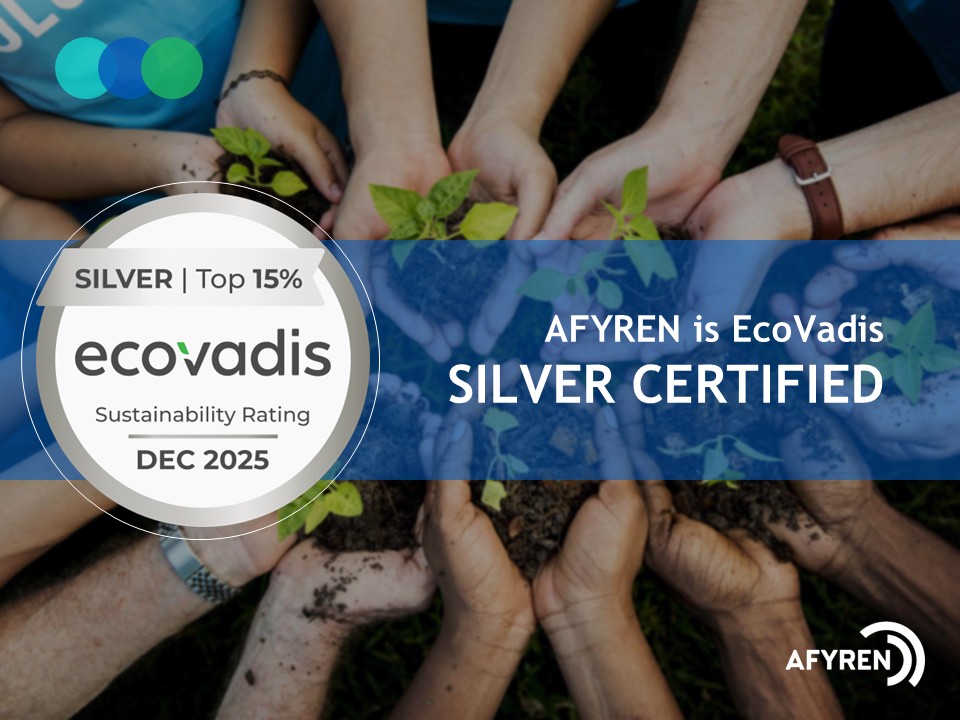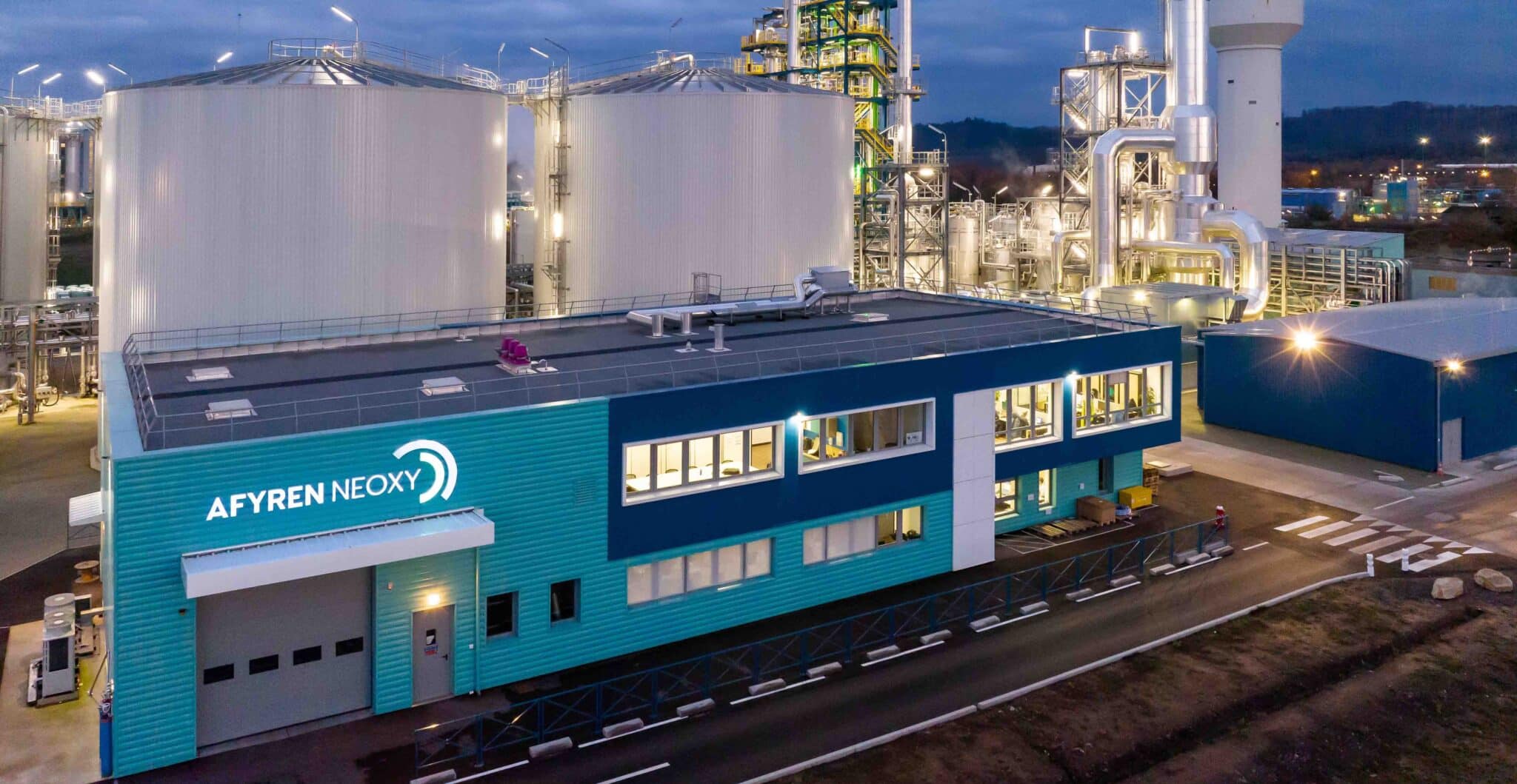Retour page d’accueil • #INSPIRINGTALKS – Part 2 – How the lubricant industry took action to lower its carbon footprint – A discussion with Apu Gosalia, also known as “The Sustainalyst”
#INSPIRINGTALKS – Part 2 – How the lubricant industry took action to lower its carbon footprint – A discussion with Apu Gosalia, also known as “The Sustainalyst”

Industrial lubricants: The greening of the industry – Part 2
This is the second of two articles on the lubricant industry’s efforts to reduce its environmental footprint. It is largely based on an extensive interview with sustainability and strategy expert Apu Gosalia, who was the driver of change in the industry when he served as Chief Sustainability Officer and VP Global Competitive Intelligence at FUCHS PETROLUB Group. If you have not read Part 1, please do that first!

PART TWO: SUSTAINABILITY MEASURES ARE AN INVESTMENT, NOT JUST A COST
Biobased ingredients: a clear path to Scope 3 emissions reduction
More than a decade ago, the lubricant industry got a big nudge from Germany and later Europe to start making sustainability a crucial selling point for the market and a priority. For several years now, there has been mounting pressure from all sides — customers, regulators, and even employees.
For many industrial lubricant companies, it has become clear that there is a solid business case for taking strong sustainability measures and considering environmental benefits. Companies that move early and invest significantly stand to gain the most, and those that see sustainability as a cost that can be postponed risk losing out, according to Gosalia.
Since as much as 90 percent of a lubricant product’s carbon footprint comes from suppliers, switching to biobased ingredients is increasingly seen as a solid path forward.
According to Gosalia, there are two kinds of climate change: the kind that causes erratic weather around the globe, and the kind that disrupts the business climate — the good or bad “vibes” around certain products or industries.
In just the last few years, a number of factors have combined to push corporations of all types toward making sustainability a priority: New disclosure requirements are coming down from regulators in the U.S. and Europe. Consumer demand for sustainable and environmentally sound products is getting louder, and employees increasingly choose jobs based on values including sustainability.
In 2022, the U.S. Securities and Exchange Commission (SEC) proposed new rules to require public companies to disclose information about their carbon emissions data (Scope 1 and Scope 2), and carbon emissions data from supply chain networks and customers (Scope 3). In the European Union, the Corporate Sustainability Reporting Directive (CSRD) is in effect, requiring nearly 50,000 companies to regularly report on sustainability.
According to a report from Deloitte, about one in six Millennial and Gen Z workers say they have changed jobs or industries because of climate concerns, while an additional 25 percent are planning to do so.
The argument for biobased raw materials
In the lubricants industry, the argument for biobased raw materials is strong and becoming stronger, Gosalia said.
“I think the whole issue of biobased products in any industry, but especially in the lube industry, will not go away and is gradually becoming the name of the game,” he said. “Because it’s also very much in the perspective of the EU regulations. Companies in the lubricant industry that don’t have at least some biobased elements on the raw material side will not fare well in the next 4-10 years. And if companies do not do this intrinsically, then they will be forced to do so.”
For the lubricant industry, Gosalia said, there are clear paths to greater sustainability, and biobased solutions and products are key.
“Recycle or re-refine products at the end of their lives; have a zero-waste, circular model; and think of ways to incorporate ingredients that have a vegetable origin, biobased products that respect biodiversity.”
The effort to nudge the lubricant industry toward sustainability faced a difficult beginning
The quest to get Europe’s lubricants industry on the sustainability path was not linear.
“The pressure was not sufficient at the beginning,” Gosalia said. “Especially in industries that are B2B, like the lubricant industry. People would say, ‘sustainability is a great thing to try, and we must save our planet, but our customers buy on other key features and characteristics. They buy on performance, they buy on price, they buy on other features.“
However, Gosalia argued that environmental criteria would create a case for differentiation, a real business case — and that regulators would eventually step in. Companies that were ahead on this front would win.
“In the beginning, the awareness was not there,” Gosalia said. “But that totally changed in the last five to seven years because of the pressure that has come from stakeholders, like customers, regulatory bodies, and the new generation of young people who do not want to work for companies that are not sustainable or good corporate citizens. This was a total change.”
First movers reap the benefits of sustainable lubricant manufacturing
Gosalia said there were some companies that “got it” early on. Evonik, a big supplier of raw materials to the lubricants industry, “was really among the front runners on sustainability,” he said.
“Evonik was on the case early with regard to measuring sustainability, with regard to developing products that are more sustainable for their customers. And working together with such companies is key to reduce carbon footprints and more.”
Communications: No greenwashing, no green hushing
How should companies in the lubricants industry communicate about their sustainability efforts? Gosalia said that it depends on where your company stands in the sustainability race.
“If you are a first mover, embrace ‘failing forward’,” he said. “Acknowledge any missteps and move on. If you are a follower, don’t be a late follower.”
All companies should embrace what Gosalia calls the strategic triad of the ‘3 C’s: Calculate your emissions, cut them down, and Compensate for the unavoidable emissions.’ When you communicate these efforts, make sure you have bulletproof data backing up what you say publicly.
“You need to communicate what the law says anyway, whether you like it or not,” he said. “Should you go beyond that? Yes. But do it strategically and don’t communicate everything — and make sure you can back up what you say.”
If you go overboard communicating everything, there is more of a chance you might make a mistake. Over-communicating opens up the ground for people who are searching for mistakes, Gosalia said.
A European Union study found that more than 50% of environmental claims companies made are vague, misleading, or unsubstantiated. This is greenwashing, and the Union has proposed a directive with specific measures to protect consumers from it. On the other hand, Gosalia also mentions the term “green hushing,” in this context referring to companies that tend not to communicate at all, even about their successful initiatives, out of fear of criticism. Steer clear of both, Gosalia said.
Get the C-suite to lead sustainability efforts
Gosalia and others urge companies to get their top executives involved, leading sustainability efforts. In an interview with The Wall Street Journal, Katie McGinty, CEO of Johnson Controls, urged corporate leaders to put climate action on the same plane as generative AI. “One of the things that would be a game changer is if companies were thinking about sustainability and climate action like they’re thinking about the advent of generative AI”, she told the Journal’s Rochelle Toplensky.
“C-suites are putting their best and brightest tiger teams on generative AI to say ‘Hey, what’s in this for us?’ And we’ve seen the incredible rapid pace of innovation that comes with that front-of-mind determination. If there was something similar, I think that leadership teams would very quickly see how smart sustainability and climate action equally drives efficiency, agility, invention, bolsters the bottom line, and makes them the employer of choice in an incredibly competitive world.”
The early birds will win out; sustainability laggards will suffer
The basic business case comes down to “spend some money on sustainability now, or pay a lot more down the road,” Gosalia said. Instead of risks, companies should look at sustainability measures as opportunities, he said:
“This is a wonderful possibility for companies to say, ‘well, I’m a lubricant company, and here are the sustainable things I am doing. These are the opportunities that I generate with my products, for instance, because they’re biobased, because they do this or that to protect the environment.’ It is a wonderful opportunity to differentiate yourself and to create a business case.”
“Sustainability costs money right now,” he said. “It is not going away; but if I do it right, then I can make a business case. And if I don’t do it, it will cost more tomorrow, once it is a standard on the market. Competitors will be better. I will lose clients. I will lose the best talents.”
Let AFYREN help you cut your Scope 3 emissions with our biobased LUBYREN(TM) chemical building blocks. Our 100% biobased molecules allow you to reduce your environmental impact without affecting the performance of your products.
Last news

AFYREN awarded Silver Medal by EcoVadis for CSR performance, ranking in the top 8% worldwide
Press release
AFYREN and ESSE Skincare begin partnership to offer 100% natural cosmetic solutions with enhanced skincare performance.
Press release
AFYREN raises €23 million through share capital increase to finance optimization and expansion of unique biorefinery AFYREN NEOXY
Press release
Deforestation – Turning compliance with EUDR into an innovation driver
Publication
Where Nature Meets Performance: The Creative Vision of Delphine Thierry
News post
AFYREN receives €4 million in grants for AFYREN NEOXY and starts new performance-driven investment strategy
Press release
